Table of Contents
Bicycle head badges were originally used to distinguish similar looking bikes from one another. In the early days of bike manufacturing and sales, head badges were an elaborate artform adorning all bikes – a reason to buy one bike over another.
These days, a nice head badge is a rarity.
The Ornamental Head Badge

At the turn of the 20th century, the humble bicycle had truly taken off. Thousands of new bike brands were cashing-in on the demand.
Construction and paint technologies were rather simple at the time. Combine this with a huge influx of unknown bike manufacturers, bikes were looking homogenous.
That’s where the bicycle head badge came in.
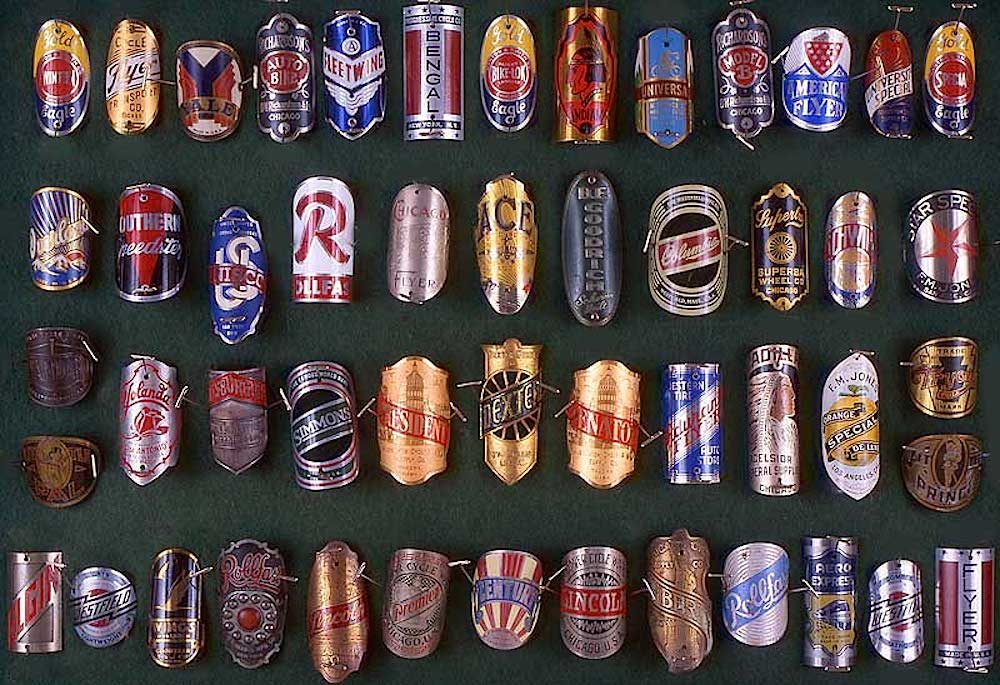
At the turn of the 20th century, head badges were simply used to distinguish one brand from another.
The push for head badges on bikes was made by both Schwinn and Pope Manufacturing, two conglomerate companies who needed a point of difference between the 1000+ smaller businesses they’d acquired.
Within years, every company under these two brands had a head badge proudly sitting up front, setting a standard for the entire industry.
With brands competing to produce the most interesting, elaborate, fanciful creations possible – head badges weren’t just a way of distinguishing between brands anymore, they were the centrepiece of the entire bike and brand. They were the bicycle equivalent of the Rolls Royce car bonnet ornament.
In the beginning, badges were often acid-etched. This process required a copper, zinc or steel plate (among other metals) to be covered with wax that is resistant to acid. Artists then use etching needles to scratch the design right down into the bare metal. The plate was then dipped into a bath of acid, dissolving all of the exposed line sections. The wax was cleaned off the plate and it was inked over. Only the ink in the etched lines remained after the plate was wiped down.
Popular head badge themes included birds in flight, war scenes, planes, imagery of gods and depictions of power.
During the 1920s through to the 1950s, the art-deco movement inspired skyscrapers and other machine-age symbols to be styled onto the front of bikes. World Champion stripes and Olympic rings featured on many badges with a racing pedigree. And finally, by the 1960s it became less about small intricacies and more about big logos and the brand symbols we see today.
Unfortunately, in this highly price-competitive industry, the heyday of the head badge stopped by the 1970s.
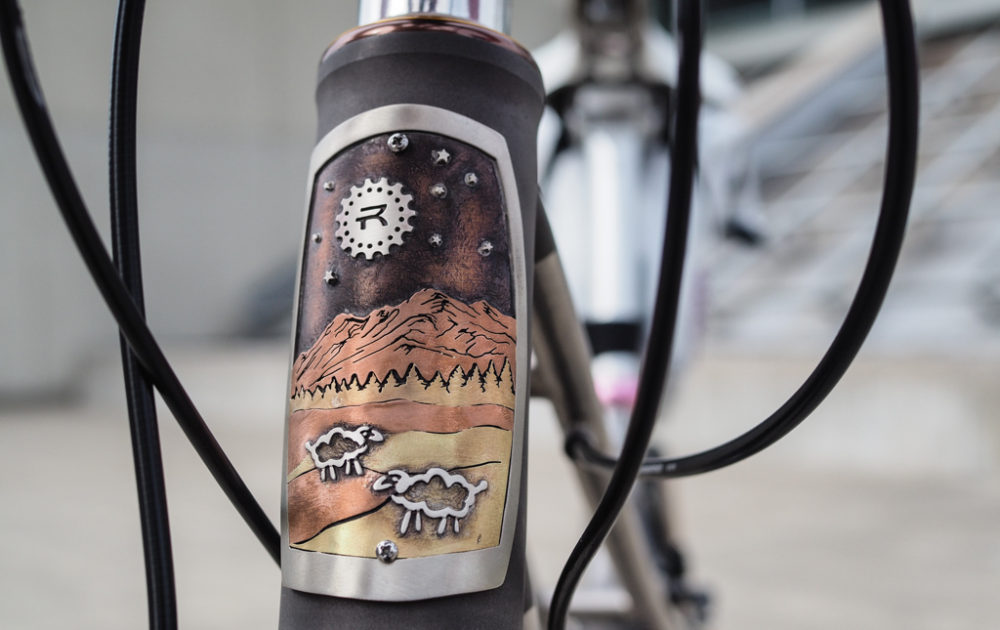
These days you’ll find less and less carefully sculpted bike jewellery – frames are instead adorned with basic metal stickers or simply a lick of paint with a logo.
While the bicycle head badge isn’t completely gone from the market, some manufacturers (mostly custom builders and niche brands) still use high-quality head badges to symbolise the history, story and the meticulousness of their brand. Their beautifully sculpted head badges remind us that frame building is still an art.
Let’s Bring Back The Head Badge
With so many bikes coming out of the same factories in Asia, I’m sure that you’ll agree that bikes are starting to look pretty homogenous again, so let’s reward brands that care about small details.
Tell them their head badges, dropouts and tubing shapes look rad. Tell them you love the small details that differentiate their brand from others.
Let’s bring back the head badge.
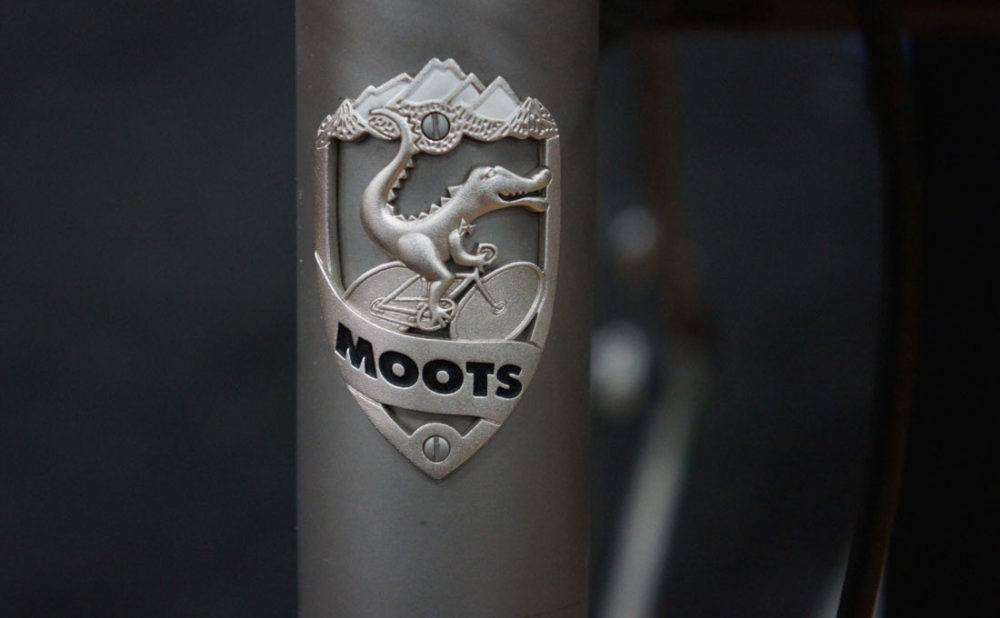
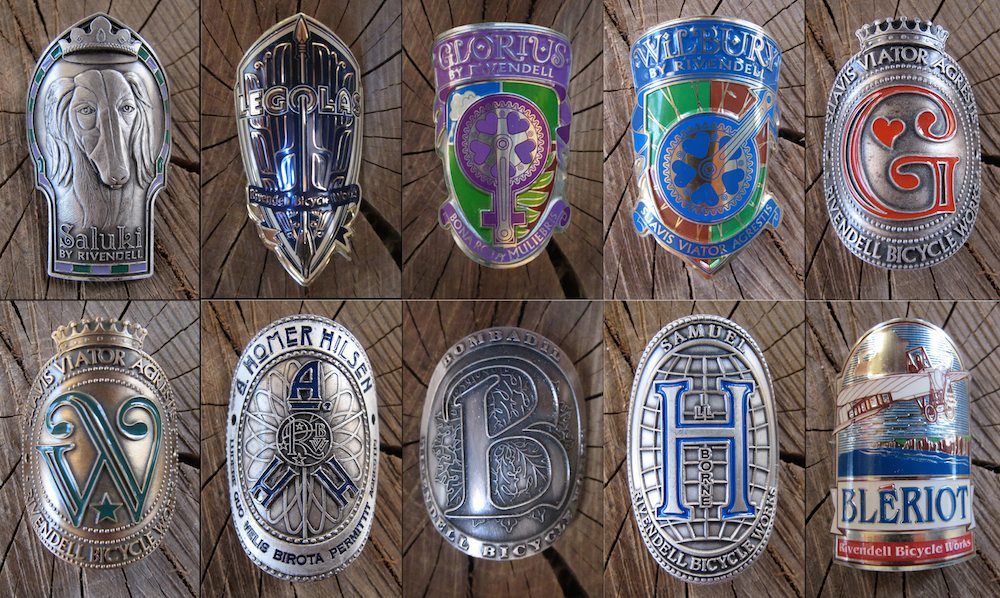

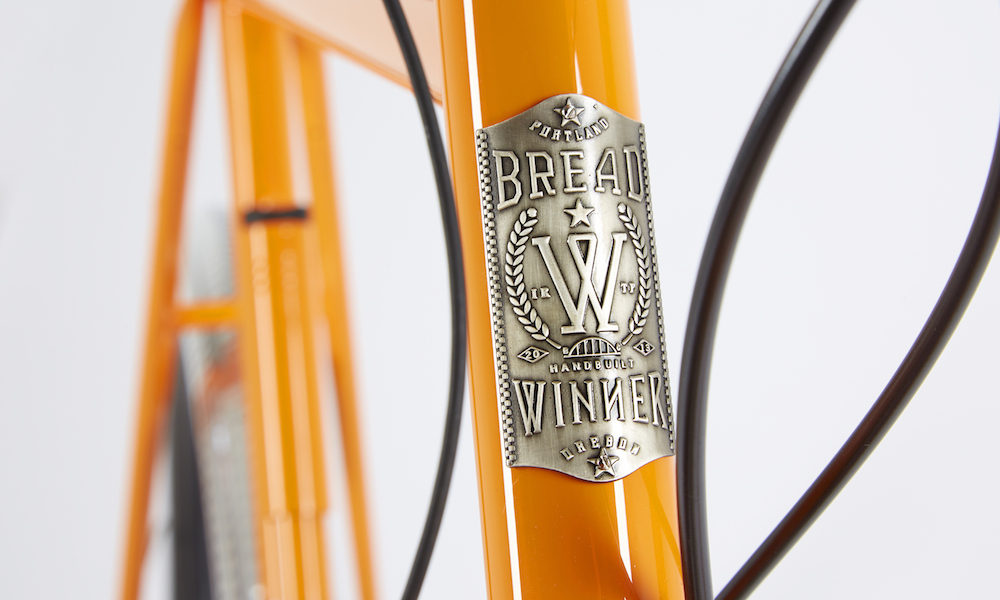

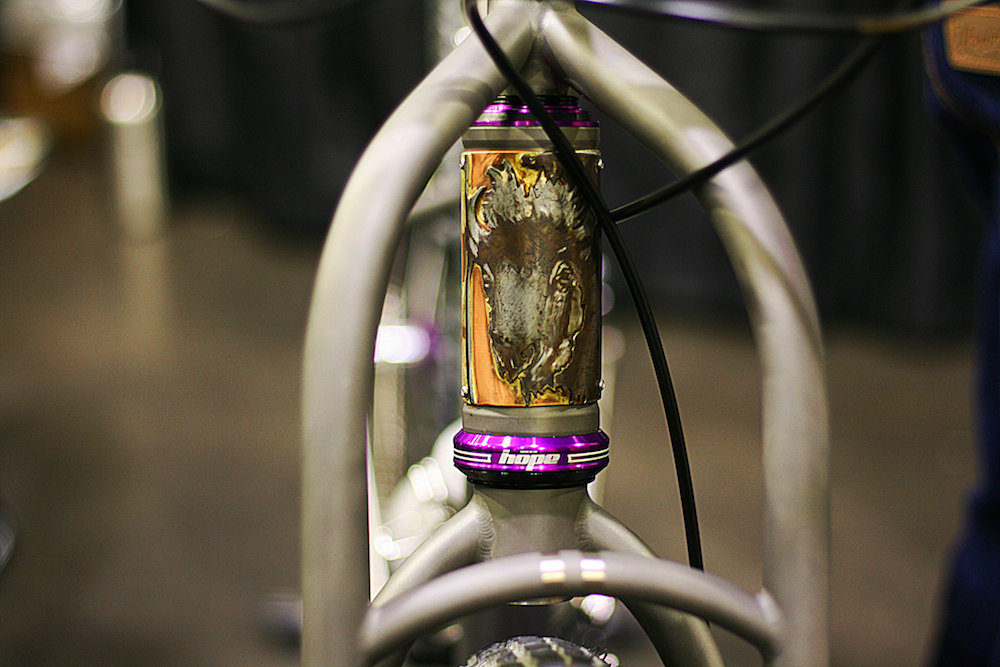

Custom Bicycle Head Badges
If your bike doesn’t come with a head badge, or you don’t like your current one – why not personalise your bike with something custom? You can choose between semi-custom designs that require minor alteration or go all-out with something that is truly unique. Anything is possible.
My pick of the bunch has to be the work by Jen Green at Revolution Cycle Jewelry.
Custom Head Badge Makers:
Revolution Cycle Jewelry // Philadelphia USA
Carl and Rose // Toronto CAN
Insignia Works // California USA
FutureCrash // Massachusetts USA
Nao Tomii // Texas USA
Marya Williams // California USA
VeloBadge // Seattle USA
Made by Cooper // West Yorkshire UK
Rui and Aguri // Japan
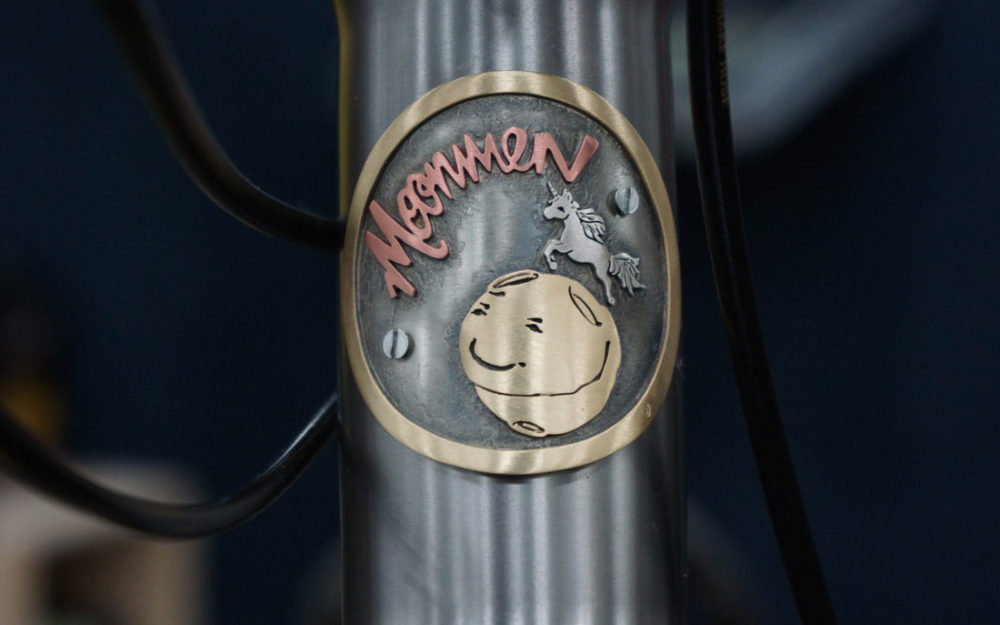
Mounting Custom Head Badges
In most cases, 3M double-sided tape is used to install a custom head badge. They’re easy to remove when the time comes to move the badge to another frame – you can get a razor blade between the adhesive and badge to cut it off. To go to the next level of detail, get a badge that has bolt mounting holes. You’ll need to drill two holes in your bike’s head tube, tap the holes and install the small bolts with Loctite. But they look amazing. Custom head badge manufacturers normally keep stock of both the bolts and taps.
Some custom manufacturers will even go the extra yard to braze head badges to their frames.
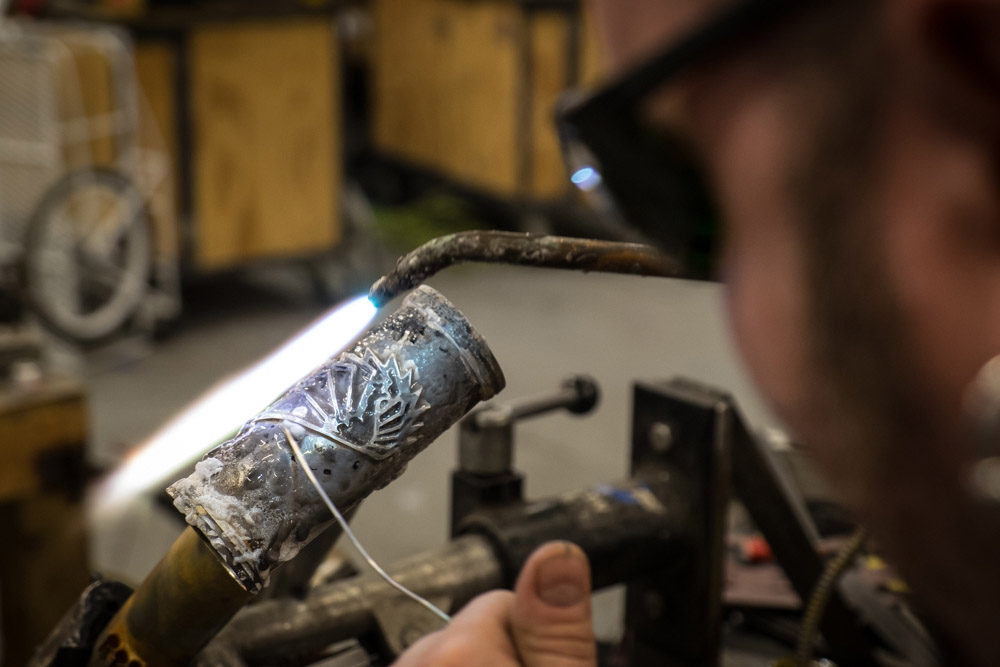
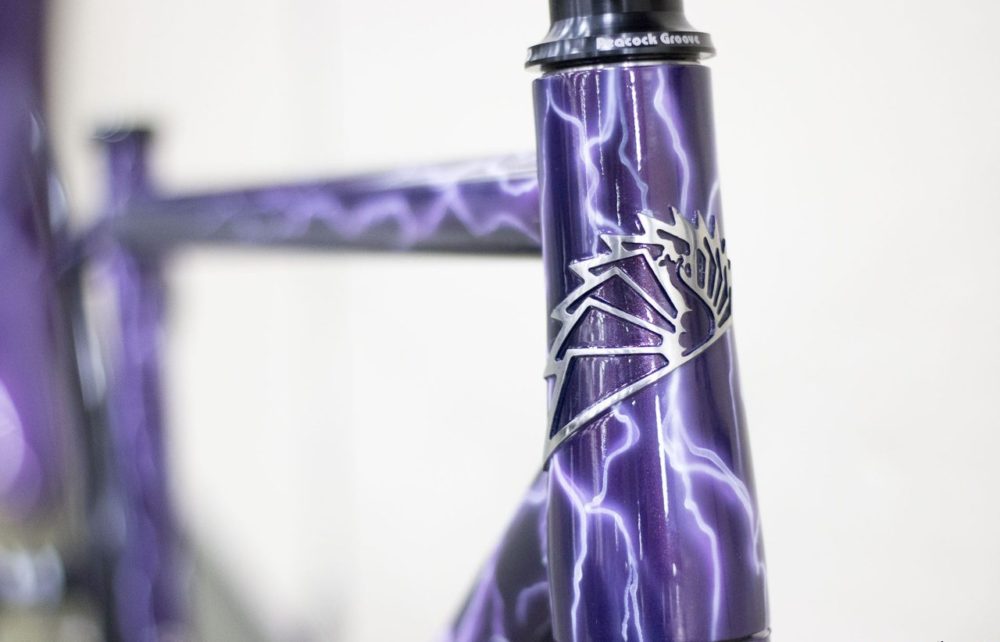
Bicycle Head Badge Galleries and Books
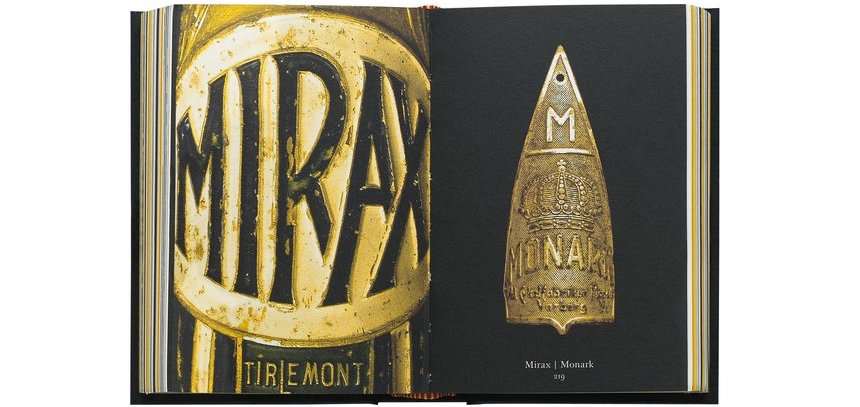
Enjoy this book that features 350+ head badges: A Cycling Lexicon (A-Z of Vintage Head Badges)
Bicycle Head Badge Flickr (5000+ Images)
Bicycle Badges Pinterest
Have You Got A Favourite Head Badge Design To Share?


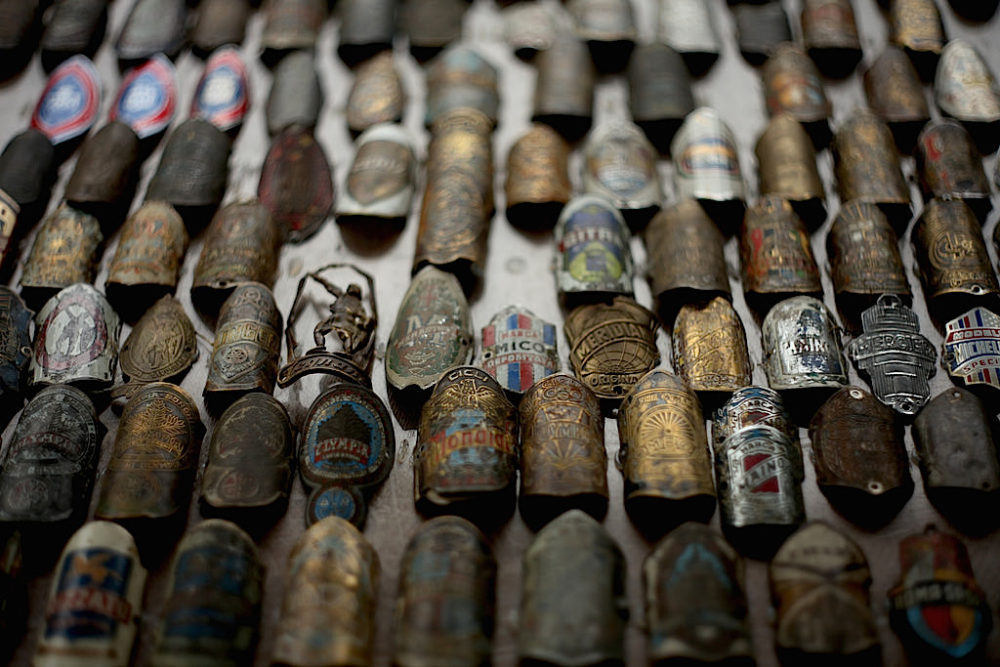

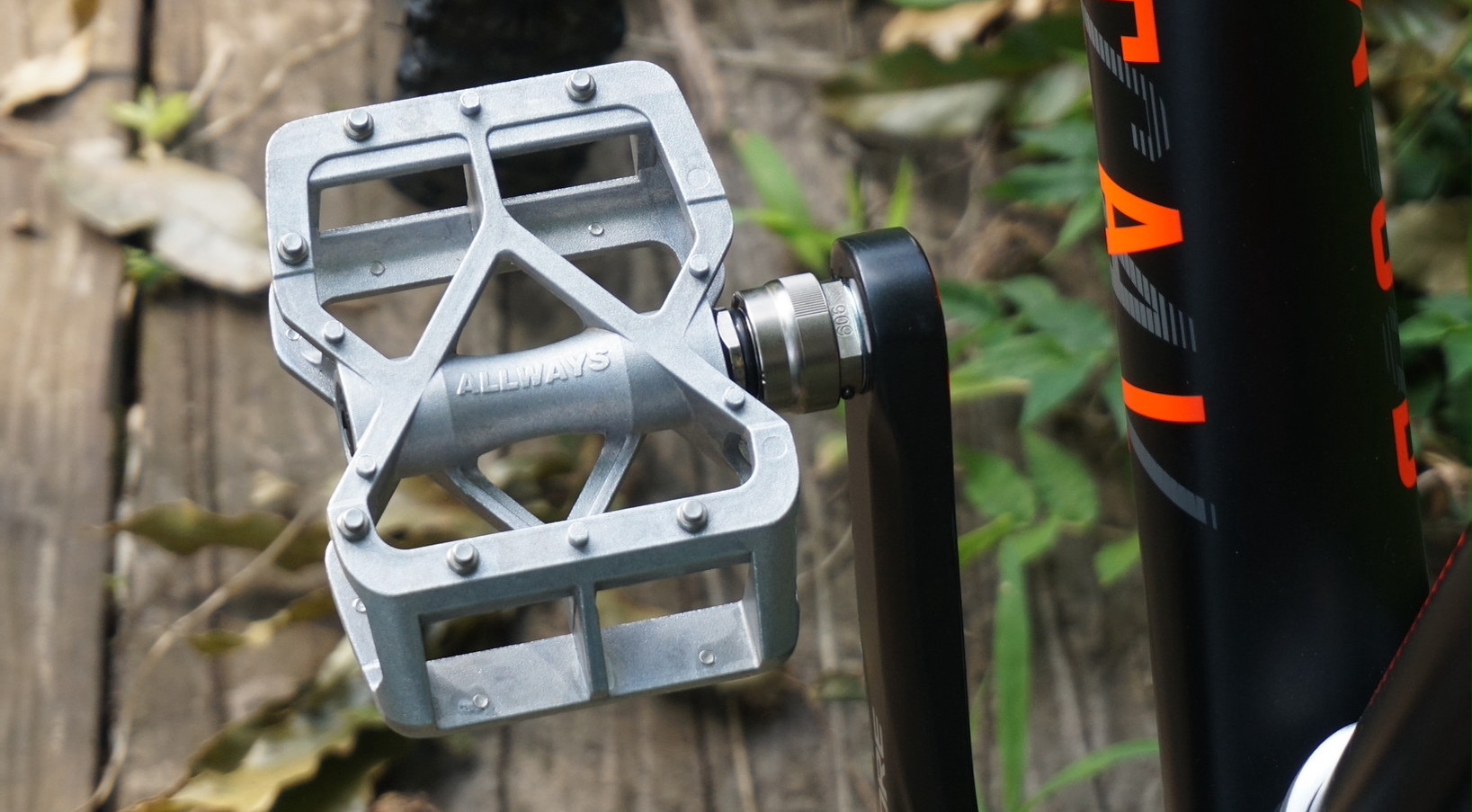
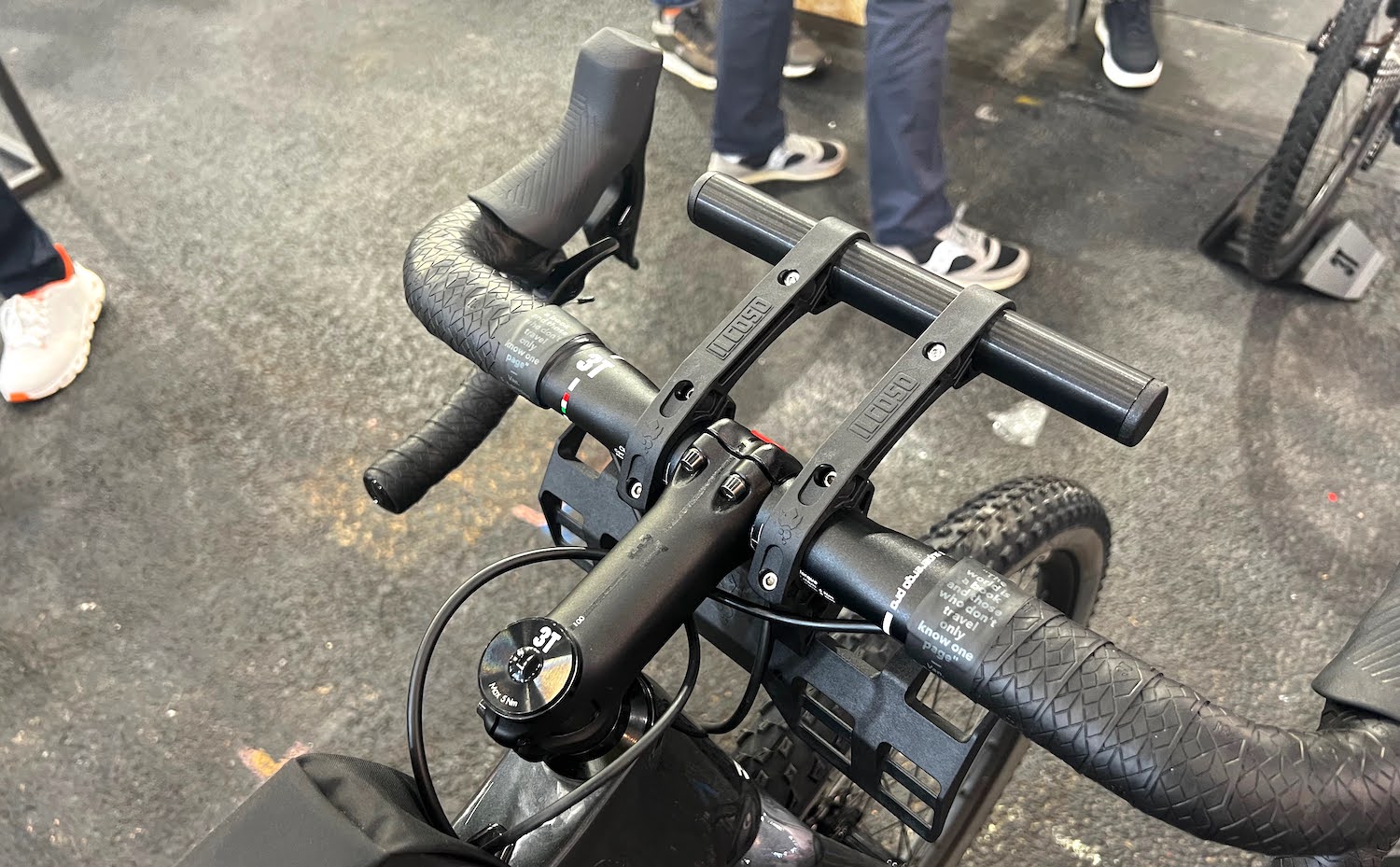
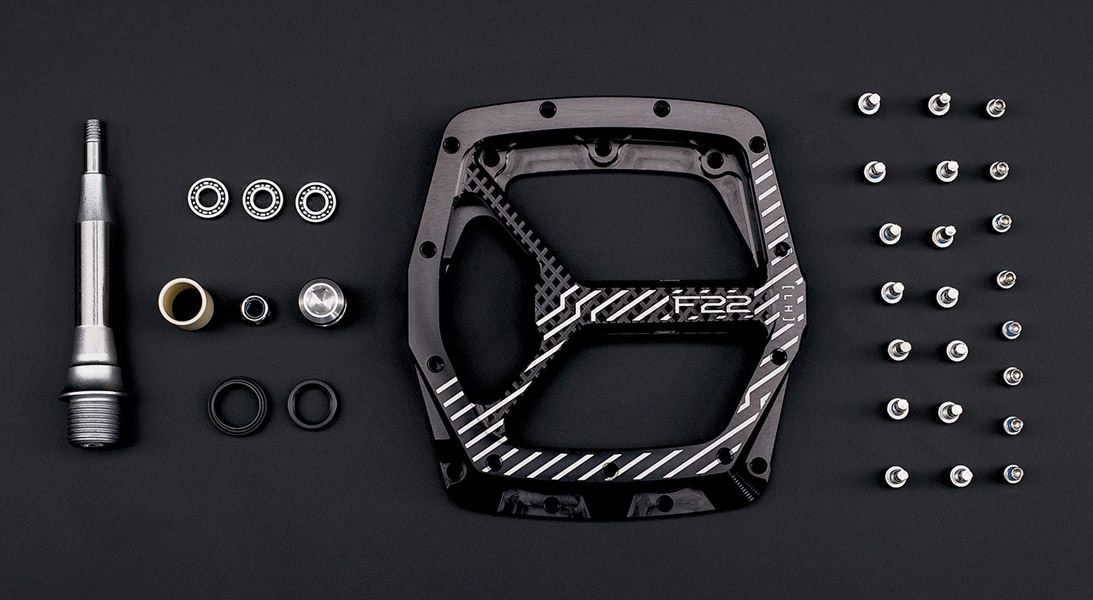

https://uploads.disquscdn.com/images/d3575ffe76144b6894b4d874a1001a5b4f2ea702512102ba8dabe94d9d403ebb.jpg Seraph’s badge, a Japenese brand with German Sheppard. Love your article, thanks !
Wow – that’s a beauty!
I have a headbadge of a Pacific Northwest Wolf by the renowned Northwest Coast Indian artist Bill Reid turned into a Fatback fat-tire bike headbadge by Jen Green @ Revolution Cycle Jewelry. Jen does amazing work. I get comments on it all the time.
https://uploads.disquscdn.com/images/c9ae2cc3f6a2cb1b87aa87107581a59d92c96e49b73d478089ae8d72e31463ea.jpg
Not so much a head-badge – nicer than my old Holdsworths’ though
Hello
I think you could take a look to my headbadges in my etsy shop called “Mediterrantio”. I make custom headbadges and other things.
http://www.etsy.com/shop/mediterrantio
Best
Nice work, Valter – and thanks for sharing!
Thank you Alee.
A tip to place badges. I place the badges using “No More Nails”. It is the best. Double -sided tape have a problem: the sun makes the glue of the tape get soft. That do not happen with “No more nails” and this glue is easy to take out using hot water o hot steam.
Good advice!
look at my site
http://balhoofdplaatje.com
gr jan v d zanden
j-vd-zanden@hotmail.com
http://balhoofdplaatje.com seems to be dead
https://balhoofdplaatje.jimdo.com/ seems to work
Awesome collection!